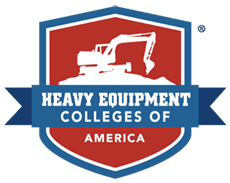The construction industry expects to grow 5% over the next eight years*. This means trained operators will be in high demand. If you’re thinking about a career shift, or want to learn more about operating excavators, you’ve come to the right place.
Check out the top five things beginners need to know about operating an excavator.
Table of Contents
How Hard Is It to Operate an Excavator?
If you take the time to train and master excavator operation, it comes easily. Practice, training, and time in the machine all contribute to ease of use. Most excavators operate similarly no matter the brand, so once you learn how to operate one you can run any.
Receiving training and education on excavators helps you operate any type during your work. Getting the right training prepares you for your future in heavy equipment operation.
Start Your Career in Heavy Equipment Industry
Want to become an Excavator?
Get trained in as little as three weeks with HEC’s accelerated Certificate of Heavy Equipment Operations — Level I program.
Start Your Application Here!Give us a CallThe Control Patterns
Excavators have one of two control patterns for operation: SAE or ISO. With ISO, the left-hand controls the swing and boom, and the right-hand controls the stick and bucket. For SAE, it’s the opposite.
Switching between ISO and SAE is difficult. Typically, whatever pattern you learn first is the one you’ll need to always use. Newer models have the ability to change patterns. Check the settings before operating to see if any adjustments to the control pattern are necessary.
Working an Excavator
Check your fluid levels before starting your machine. One of the first things you should notice about the excavator is the red safety lever acting as a parking brake. When it is disengaged, hydraulic controls are inoperable.
After turning on the machine, engage the safety lever by pulling it up. This locks it in place and makes it so if you exit the excavator without disengaging it, you’ll have to physically climb over it. You’re less likely to forget to disengage the safety lever before exiting.
The display panel near your right knee will monitor fuel levels as well as indicate the control pattern. The two joysticks help you navigate and move the bucket. There are also track controls in front of the seat which moves the excavator with either your hands or feet.

Traits of an Excavator Operator
There are certain skills and traits that are required for excavator operators: 18+ years old or older, valid driver’s license, and good vision. There are additional traits that make someone suited to be an excavator operator.
- Self-motivation
- Problem solver
- Mechanical aptitude
- Good hand, eye, and foot coordination
- Self-awareness
How to Become a Better Excavator Operator
Excavator operators don’t need a special license to operate the machines. However, those with training in heavy machinery operation are more valuable hires. Excavator operator training programs give you the tools, resources, and hands-on training to become a better excavator operator.
Dig Into a New Career
A new career in heavy equipment operation is within reach. Get trained in as little as three weeks with HEC’s accelerated Certificate of Heavy Equipment Operations — Level I program. You’ll receive hands-on training and valuable skills in digging, trenching, loading, and construction site fundamentals. This program sets the stage for further education opportunities.
Get a leg up in your new career in heavy equipment operation. Call (888) 414-0285 today to enroll or start the process online.
